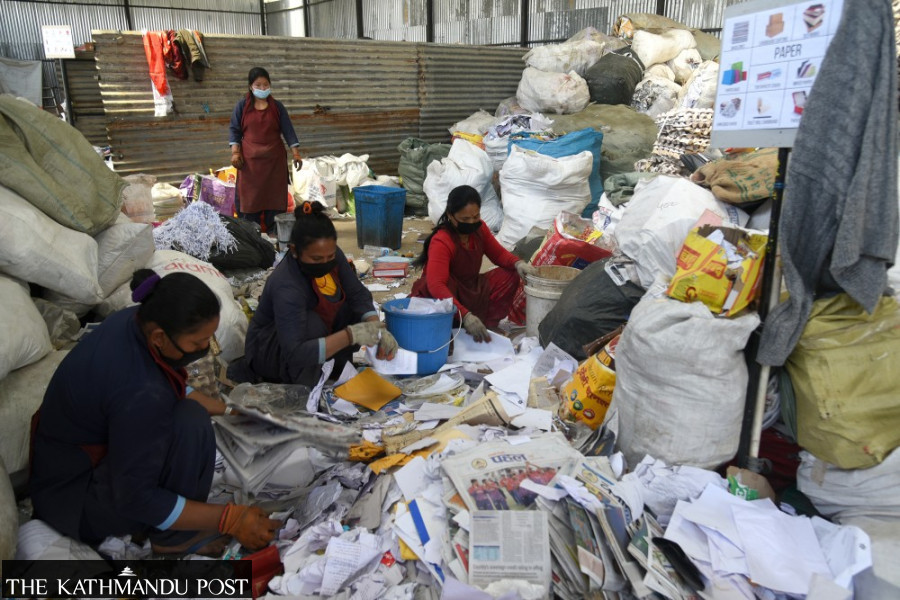Kathmandu
KMC to send only segregated waste to landfill
Metropolis plans to pilot sewage filtration at its office, and hopes to expand the programme to other settlements.
Post Report
In a bid to reduce the volume of waste being dumped at landfill sites, the Kathmandu Metropolitan City has been working on a plan to segregate all household waste produced within its jurisdiction.
Officials hope that the new measures will help lessen the quantity of waste, which will, in turn, help in managing landfill sites more effectively.
“We have divided the 32 wards of the metropolis into seven blocks where household waste will be segregated,” said Sarita Rai, chief of the Environment Department at the KMC. “We have also issued a tender for interested private companies to bid for the collection of household waste.”
Since February last year, the city office has been collecting segregated household waste from its 10 wards—wards 5, 6, 7, 10, 12,20, 22, 23, 24 and 27.
For this, KMC has outfitted some of its garbage trucks with separate compartments to keep the waste sorted.
Degradable waste materials are being turned into compost at the KMC’s waste transfer station. Officials said that the metropolis is also using reagents to speed up the compost-making process.
The department uses the compost in city gardens and parks, and also distributes some of it to local residents. It also generates revenue by selling non-degradable but reusable waste.
Officials said that the city office will provide land for waste transfer stations to private companies, where collected household waste will be segregated.
“We have signed agreements with two private companies to collect, segregate, and manage the household waste in each block, and we are in the process of signing agreements with four others,” said Rai. “Those companies will only collect household waste, but will not charge residents. The metropolis itself collects the charges and pays the private companies.”
The metropolis has also installed 1,000-litre compost bins at 89 community schools within its jurisdiction. These bins are used to convert degradable waste into compost.
Waste segregation at the source was one of the solutions promoted by Mayor Balendra Shah to address Kathmandu’s chronic garbage problem.
The Kathmandu Valley produces over 1,200 tonnes of solid waste daily, with nearly 60 percent originating from the KMC alone. Experts estimate that 60 percent of the organic waste originating in the Valley can be converted into compost, while the remaining 30 percent of non-degradable waste can be recycled.
Officials said they will also ask other local units in the Kathmandu Valley to sort out household waste and dispose of only non-degradable and non-reusable waste in the landfill.
All 18 local units in the Kathmandu Valley—Kathmandu, Lalitpur, and Bhaktapur, among others—along with some local units from Kavrepalanchok, dump household waste at the landfill site in Bancharedanda.
Meanwhile, the KMC’s environment department has also been preparing to filter sewage water from its office at Kathmandu Plaza. Officials hope that this move will help keep the Valley's river clean. They have allocated Rs1 million to purchase a device for the filtration of sewage water.
“This programme will be expanded to other settlements if we find it to be workable,” said Rai. “We will first pilot the filtration of wastewater.”




 14.12°C Kathmandu
14.12°C Kathmandu










